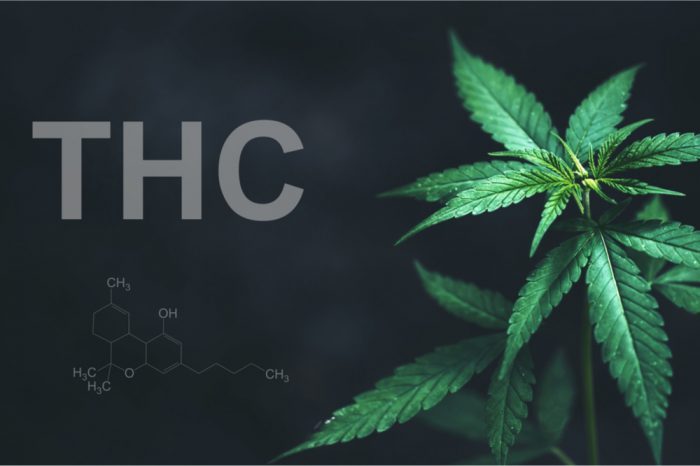Research: Should You Use CBD or THC for Pain Relief?
The challenges associated with daily chronic pain may only be truly understood from real-life experience. Chronic pain makes even the simplest of tasks seem impossible. Beyond the physical pain, it’s a condition that can create a sense of isolation and lead to mental health issues. Patients with chronic pain and related conditions are often desperate for a safe, effective solution. Many have turned to cannabis in their quest for pain relief. But is CBD or THC more suitable for pain relief?
The best option for pain relief may ultimately depend on the source of the pain: inflammation or nerve? With this information, it’s much easier to determine whether CBD or THC for pain relief (or a combination of the two) is the most effective.
Still, there is a lot of information out there, making it hard for patients to find the facts on cannabis for pain relief. At the end of the day, what is the best option for pain relief — CBD or THC?

What is CBD?
Many brands talk about cannabidiol (CBD) products as a “miracle medicine,” curing just about every condition plaguing the modern world. While certain companies may exaggerate the benefits, there is strong evidence behind CBD’s therapeutic value. Yes, CBD has a vital role to play in the management of many conditions, but does it have what it takes to kill pain?
Cannabidiol and delta-9-tetrahydrocannabinol (THC) are the two most predominant cannabinoids in the cannabis plant. Unlike THC, CBD does not have any psychotropic effects, making its therapeutic potential appealing to a wider number of patients. The most common medicinal uses for CBD include epilepsy, inflammation, and anxiety.
And now, patients are exploring the benefits of using CBD to treat chronic pain. But, some popular articles on cannabis for pain refute this. Many people strongly feel that THC is best for pain.
What’s the truth? Well the answer is “it depends” – mostly, whether CBD or THC is best for pain relief depends on what type of pain you actually have.
Understanding the Mechanisms Behind THC and CBD for Pain Relief
Most studies to date have observed that THC is the cannabinoid most responsible for the plant’s analgesic effects. In 2004, [1]Notcutt, W., Price, M., Miller, R., Newport, S., Phillips, C., Simmons, S., & Sansom, C. (2004). Initial experiences with medicinal extracts of cannabis for chronic pain: Results from 34 ?N of 1? … Continue reading a team of researchers compared the pain relief of three different formulas of cannabinoids: THC, CBD, and a 1:1 ratio of both. Their results, published in the journal Anaesthesia, concluded that formulas with THC produced the most pain relief.
Further, we now know that THC strongly activates the CB1 receptor, which is involved in pain signaling pathways. CBD, on the other hand, does not bind to the CB1 receptor, although many people report it has powerful pain-relieving effects. CBD doesn’t operate through well-understood channels, so it has proven harder to pinpoint the biological mechanism behind its pain-relieving qualities.
The Importance of Anti-Inflammatory Medicine
Research has proven that CBD is strongly anti-inflammatory. And, its anti-inflammatory effects may indeed create pain relief. A paper published in PNAS in 2006 [2]Carrier, E. J., Auchampach, J. A., & Hillard, C. J. (2006). Inhibition of an equilibrative nucleoside transporter by cannabidiol: a mechanism of cannabinoid immunosuppression. Proceedings of the … Continue reading postulates this may come from its ability to block the adenosine transporter, which in turn promotes the signaling of the adenosine receptor A2A. The adenosine receptors are a new and exciting target for pain relief. [3]Sawynok, J. (2016). Adenosine receptor targets for pain. Neuroscience, 338, 1–18. doi: 10.1016/j.neuroscience.2015.10.031
“Cannabinoids in the management of difficult to treat pain” by Dr Ethan B. Russo also hypothesized that CBD might work through different non-endocannabinoid receptors, including the transient receptor potential cation channel, or vanilloid receptor (TRPV1), to reduce sensitivity to pain. CBD may also work by preventing the breakdown of endogenous cannabinoids like anandamide, which in turn would allow their concentrations to build up and help to subdue pain signaling. [4]Russo E. B. (2008). Cannabinoids in the management of difficult to treat pain. Therapeutics and clinical risk management, 4(1), 245–259. https://doi.org/10.2147/tcrm.s1928
Essentially, CBD or THC for pain relief might come down to what type of pain is happening, and what receptors are involved in the pain signaling. THC seems best suited for neuropathic pain, while patients might find CBD best to consume for inflammatory pain, like arthritis or localized inflammation.
However, is it possible that a combination of CBD and THC could provide the most relief?

Do CBD and THC Work Together?
THC and CBD have an interesting relationship. CBD effectively reduces the psychoactive effects of THC. Researchers agree that CBD “antagonizes” THC, meaning it turns down the strength of the duration of the intoxicating connection.
Additionally, experts strongly believe that combinations of cannabinoids are more potent than the sum of the individual parts. This theory, the Entourage Effect, was popularized by Ethan B. Russo. The synergistic therapeutic benefits of a full-spectrum product have immediate applications for chronic pain. Why? Because pain is complicated.
Pain can be both inflammatory and nerve-related. For example, cancer-related pain may come from multiple root causes, requiring a multi-angle solution. Instead of asking CBD or THC for pain relief then, why not experiment with both?
CBD or THC for Pain Relief? Every Patient is Different
When taken separately, CBD is excellent at reducing inflammation, which can result in a reduction in pain. THC is a well-established pain reliever as well, especially for neuropathy. Yet, it’s the combination that seems to be the most effective therapy. Not only does a little CBD reduce the intoxicating effects of THC, but it may also boost pain relief through receptors responsible for pain signaling.
Further, remember that cannabis medicine is a highly personalized experience. What works for one patient may not be suitable for another. Dose, potency, and route of administration can change the therapeutic experience. Instead of using just CBD or THC for pain relief, patients may want to experiment with different combinations. A little THC may significantly boost the pain relief of a CBD product, and a little CBD could mute the psychotropic effects of THC. The Entourage Effect is a useful tool for reaping the most therapeutic benefit from cannabis medicine.
References





